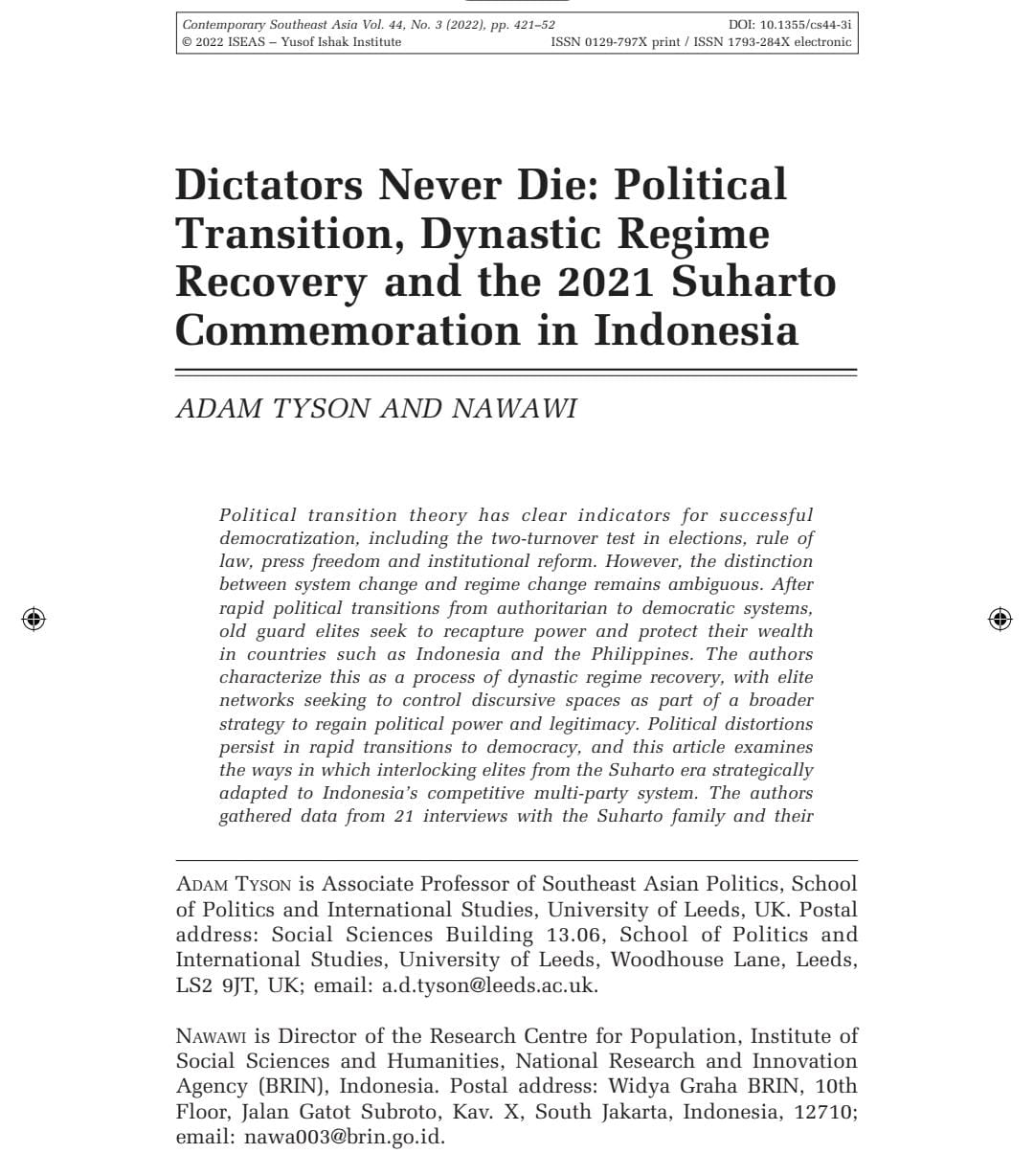by Adam Tyson, Nawawi, authors
ABSTRACT
Political transition theory has clear indicators for successful democratization, including the two-turnover test in elections, rule of law, press freedom and institutional reform. However, the distinction between system change and regime change remains ambiguous. After rapid political transitions from authoritarian to democratic systems, old guard elites seek to recapture power and protect their wealth in countries such as Indonesia and the Philippines. The authors characterize this as a process of dynastic regime recovery, with elite networks seeking to control discursive spaces as part of a broader strategy to regain political power and legitimacy. Political distortions persist in rapid transitions to democracy, and this article examines the ways in which interlocking elites from the Suharto era strategically adapted to Indonesia’s competitive multi-party system. The authors gathered data from 21 interviews with the Suharto family and their associates, as well as observations from an exclusive commemorative event celebrating the centenary of Suharto’s birth in June 2021. The centenary celebration was a network-led revanchist effort to promote a positive narrative about Suharto’s presidency, as a constituent part of a complex regime recovery strategy. The 2022 election of Ferdinand “Bongbong” Marcos Jr. in the Philippines indicates that there are opportunities for the rehabilitation of formerly discredited political dynasties. The recovery of the Suharto family legacy, business networks and political party coalitions has yet to ensure institutional recapture or electoral victory, but it is too soon to write a definitive political obituary.

